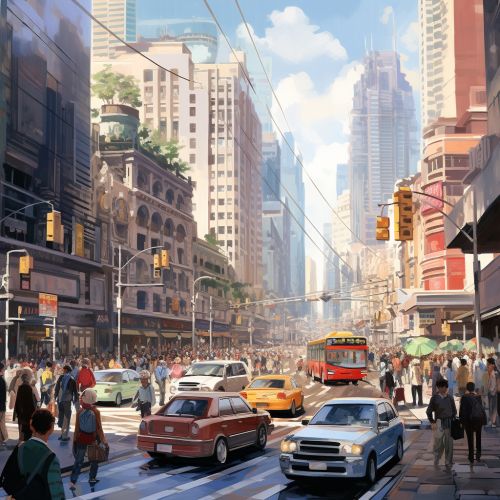Urban geography
Introduction
Urban geography is a sub-discipline of geography that focuses on the study of cities and urban areas, their patterns, processes, and the problems they face. It is a broad field that encompasses many aspects of the urban environment, from the physical and built environment to the social and economic structures that shape them.
History of Urban Geography
The study of urban geography has its roots in the early 20th century, when geographers began to focus on the urban environment as a distinct area of study. The field has evolved significantly since then, with the development of various theories and methodologies that have shaped our understanding of cities and urban areas.
Theoretical Approaches
There are several theoretical approaches that have been used in the study of urban geography. These include the Chicago School, which focused on the social and spatial organization of cities, and the Los Angeles School, which emphasized the role of globalization and cultural diversity in shaping urban spaces.
Urban Structure and Form
Urban structure and form refer to the physical layout and organization of cities. This includes the arrangement of buildings, streets, and other physical features, as well as the patterns of land use and development. Urban geographers study these patterns to understand how they influence the social and economic life of cities.


Urban Processes
Urban processes are the various social, economic, and environmental processes that occur within cities. These include urbanization, gentrification, suburbanization, and deindustrialization, among others. Understanding these processes is crucial for addressing the challenges and opportunities that cities face.
Urban Challenges
Cities and urban areas face a range of challenges, from environmental issues such as pollution and climate change, to social issues like poverty and inequality. Urban geographers study these challenges and propose solutions to address them.


Urban Planning and Policy
Urban planning and policy are key areas of focus in urban geography. They involve the design and regulation of urban spaces, as well as the development of policies to manage urban growth and address urban problems. Urban geographers often work closely with urban planners and policymakers to inform their decisions.
Future of Urban Geography
The future of urban geography is likely to be shaped by ongoing trends such as urbanization, globalization, and climate change. As cities continue to grow and evolve, urban geographers will play a crucial role in understanding and addressing the challenges they face.


